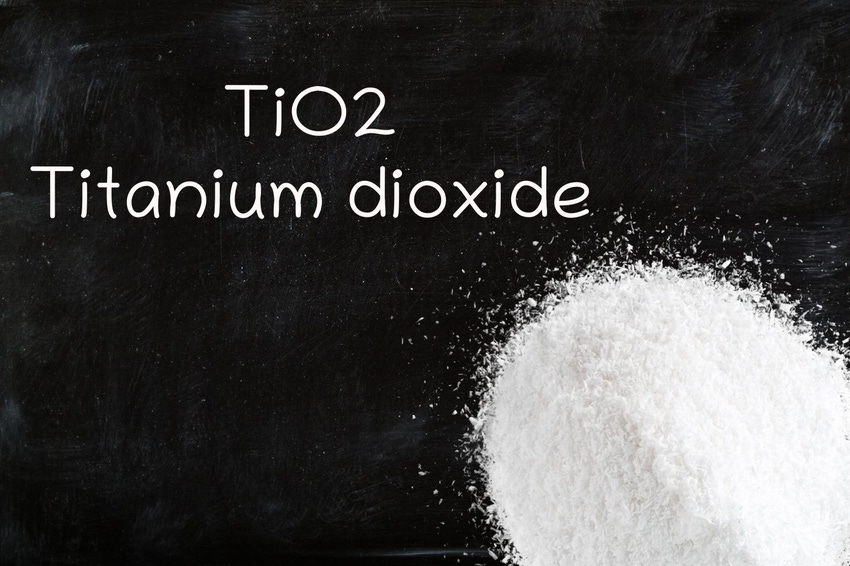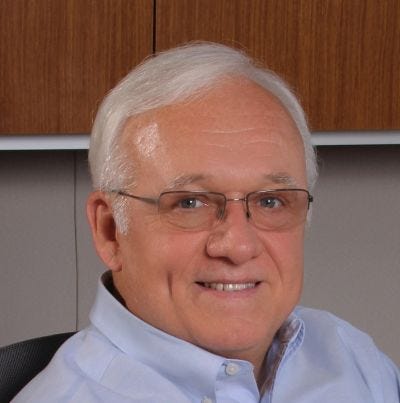JECFA reconfirms safe use of titanium dioxide in foods
A safety review of titanium dioxide by an international body emphasizes the importance of streamlined assessments to enhance efficiency and consistency in regulatory decisions, according to Duffy MacKay of the Consumer Healthcare Products Association and David Schoneker of Black Diamond Regulatory Consulting.

At a Glance
- Titanium dioxide (TiO₂) serves as a focal point in understanding the pressing need for globally harmonized regulations.
- International bodies have concluded there are no safety concerns with the use of TiO₂ in foods at currently approved levels.
- JECFA’s safety review reaffirms the safety of TiO₂ and should be a call for global harmonization.
In the intricate tapestry of food and dietary supplement ingredient rules, manufacturers grapple with the challenge of a patchwork of regulations intended to ensure the safety of food ingredients.
Titanium dioxide (TiO₂), a widely used but recently debated color additive, serves as a focal point in understanding the pressing need for harmonized regulations. And the positive results from a recent titanium dioxide safety assessment — released by the World Health Organization (WHO) and Food and Agriculture Organization of the United Nations’ (FAO) Joint Expert Committee on Food Additives (JECFA) — present a current opportunity to achieve regulatory harmony.
Imagine the food and dietary supplement industries as a grand symphony, with each regulator akin to a conductor orchestrating safety standards. The lack of harmonization creates dissonance, which is particularly evident in the case of TiO₂.
The debate surrounding TiO₂ reflects the challenges faced by manufacturers operating in different regions. While Europe has approached the TiO₂ question using the precautionary principle, the U.S. Food and Drug Administration (FDA), Health Canada and other regulatory bodies have conducted independent reviews, deeming TiO₂ safe for use in food and supplements.
There has been no harmonized position related to TiO₂. Among the many global regulatory authorities, there has been disagreement about how the European Food Safety Authority (EFSA) justified banning TiO₂ in food using non-food and nano grades of TiO₂ as the basis for its position. This divergence in opinions highlights the need for a unified standard based on credible science.
TiO₂ serves critical functional purposes in dietary supplements as an opacifier that provides protection to dietary ingredients from heat, light and UV exposure. TiO₂ is also an important pigment that provides key properties necessary for achieving desired colors necessary for product identification. Removing titanium dioxide from dietary supplement formulations would compromise the stability, marketability and consumer acceptance of dietary supplements that have been available for decades.
Some seeking to ban titanium dioxide argue for using alternative ingredients or production methods. However, the proposed substitutes often fail to replicate the unique properties and functionality that TiO₂ provides.
Currently, no other material is available that would provide equivalent properties to what is achieved with TiO₂. The removal of this ingredient would require extensive reformulation and testing, which could lead to increased costs for manufacturers and reduced choices and access for consumers. Reformulated products would not not match the existing colors of current products on the market, and in most cases, these changes may risk stability issues related to light sensitivity and reduced opacity.
Many TiO₂ alternatives have been explored including calcium carbonate alone or in combination with other ingredients in varying coating systems. This also could create some unique challenges, including sustainable sourcing, the inclusion of elemental impurities, pH-related stability or degradant concerns owing to CaCO3 alkalinity, and changes in release profile due to the increased coating thickness to achieve a similar opacity. Additionally, the use of alternative options may introduce its own set of safety concerns, necessitating thorough evaluation before widespread adoption.
These factors collectively demonstrate the complexities and limitations associated with finding suitable alternatives to titanium dioxide. Of course, there is a real question about whether TiO₂ alternatives are even needed since there is growing global agreement by many countries that the use of TiO₂ in food applications poses no actual safety concerns.
Recent evaluations by esteemed organizations — including the UK Committee on Toxicity of Chemicals in Food, Health Canada, FSANZ and the Japanese MHLW — have echoed the safety of TiO₂. In addition, FDA updated its website on March 4, 2024, acknowledging it is currently reviewing a color additive petition filed on April 14, 2023. However, the updated website cites the recent JECFA report and other international regulatory bodies that do not have safety concerns with the use of TiO₂ in foods at the currently approved levels.
On Feb. 19, 2024, a new study conducted by Chinese regulators on food grade TiO₂ was published, which concluded the food additive does not have genotoxic potential, although it contains a fraction of nanoparticles. Under the condition of the study, food additive TiO₂ was shown to not cause genotoxic effects. No micronucleus formation or chromosomal aberration was seen in mice bone marrow cells. The researchers also found TiO₂ (meeting China’s food standards) did not induce DNA strand breakage in rat liver cells.
These findings by various regulators align with the comprehensive JECFA safety review published in November 2023, which supports the safety of TiO₂. Following a thorough examination of available research, JECFA determined that previous safety concerns lacked support from the evidence. This conclusion was reinforced by the substance’s very low oral absorption rate and the absence of identifiable hazards. The decision specifically pertains to INS171, the international number system for pigmentary titanium dioxide used as a food additive, like the E 171 specification in the European Union.
JECFA will uphold the status of TiO₂ with an acceptable daily intake “not specified” in the diet, indicating no limits on the consumption or quantity of TiO₂ in food. In practice, TiO₂ content in foods is typically much lower than 1%.
JECFA’s safety review not only reaffirms titanium dioxide’s safety, but also should be a call for global harmonization, emphasizing the importance of streamlined assessments to enhance efficiency and consistency in regulatory decisions. Considering this, FDA should reject the color additive petition that requests to revoke the color additive listing for use of TiO₂ in food in the U.S.
In addition, the European Commission should consider the JECFA scientific consensus in relation to current and potentially upcoming European regulations related to drugs and make changes accordingly to align with global scientific opinions. The safety reviews from various global entities, culminating in JECFA’s latest decision, serve as a comprehensive recipe for standardized regulations. The emphasis on relying on a shared body of scientific evidence supports the idea that harmonized standards, based on sound science, rather than the precautionary principle, will benefit both consumers and industry.
In the symphony of dietary regulations, TiO₂ emerges as a key example prompting reflection on the need for regulatory harmonization. The recent JECFA safety review acts as a crescendo, urging regulators in the U.S. and worldwide to converge toward a shared understanding.
As leaders in the dietary supplement industry, the call is clear: advocate for standardized regulations that prioritize consumer safety and foster innovation. In this pursuit, TiO₂ serves as both a challenge and an opportunity to compose a harmonious future for global food safety standards.
About the Author(s)
You May Also Like








.png?width=800&auto=webp&quality=80&disable=upscale)